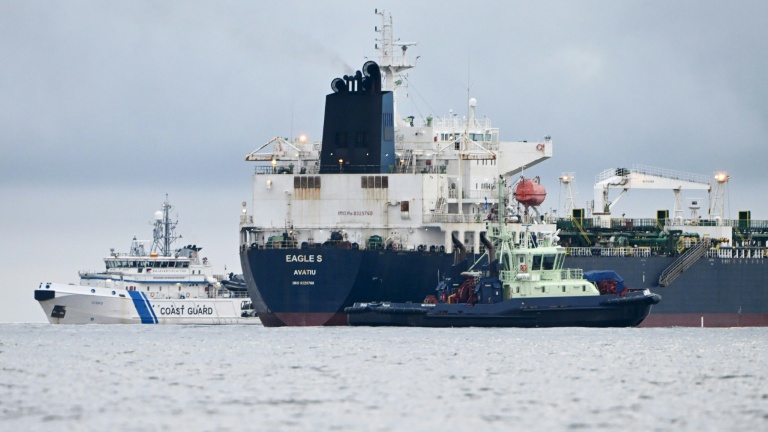
A Helsinki court on Friday dismissed a case against three members of a ship from Russia’s “shadow fleet” suspected of cutting Baltic Sea cables, saying it was beyond its jurisdiction.
The captain and two senior officers of the Cook Islands-registered oil tanker Eagle S were accused of dragging the anchor on the seabed for around 90 kilometres (56 miles), damaging five undersea cables in the Gulf of Finland on December 25, 2024.
The EstLink 2 power cable and four telecommunications cables connecting Finland and Estonia were damaged in the incident, one of several similar occurrences last year.
With tensions mounting around the Baltic Sea since Russia’s full-scale invasion of Ukraine in February 2022, many experts and political leaders have viewed the suspected sabotage as part of a “hybrid war” carried out by Russia against Western countries.
The Helsinki District Court said it was “dismissing the charge in the case involving the tanker Eagle S along with the claims for damages… as it was not possible to apply Finnish criminal law.”
Prosecutors had argued the captain, Davit Vadatchkoria of Georgia, and senior officers Robert Egizaryan, a Georgian, and Santosh Kumar Chaurasia from India, neglected their duties intentionally, after leaving the Russian port of Ust-Luga.
The three were charged with “aggravated criminal mischief and aggravated interference with communications”.
Prosecutors had called for unconditional prison sentences of at least two-and-a-half years.
According to prosecutors, the trio “neglected to investigate the reason for the drop in speed and engine revolutions, even though it was clear that they were caused by an external force that was affecting the ship”.
The defendants, who testified before the court in August and September, denied the charges.
The defence had argued that Finland lacked jurisdiction because the cable cuts happened outside Finnish territorial waters.
The prosecution insisted it did due to the risk posed to Finland’s critical infrastructure.
The court said the incident did not result “in the kinds of consequences to Finland’s energy supply or telecommunications that are required to satisfy the statutory definion of criminal mischief or aggravated criminal mischief.”
However, it did cause serious economic losses.
The court found that “the anchor loss was due to a failure of the anchor securing mechanism” and “should be classified as an incident of navigation within the meaning of the United Nations Convention on the Law of the Sea”.
“Courts of the ship’s flag state or the defendants’ native states that had criminal law competence in the matter,” it added.
When the trial ended in September, the court revoked the suspects’ travel bans in place since December 2024.
The defendants had insisted the cables were severed accidentally, and claimed the ship slowed down due to engine problems and rough weather conditions.
According to Vadatchkoria, there had been no indication the anchor had fallen from the ship.
“There was no reason to doubt that it was not in order,” he told the court.
But prosecutors argued the crew must have been aware of the anchor dragging behind the vessel.
“If a ship drags an anchor behind it for several hours for 90 kilometres, is it really possible that no one would notice?” prosecutor Mikko Larkia said at the start of the trial.
Potential Russian responsibility for the incident was not discussed during the trial.



